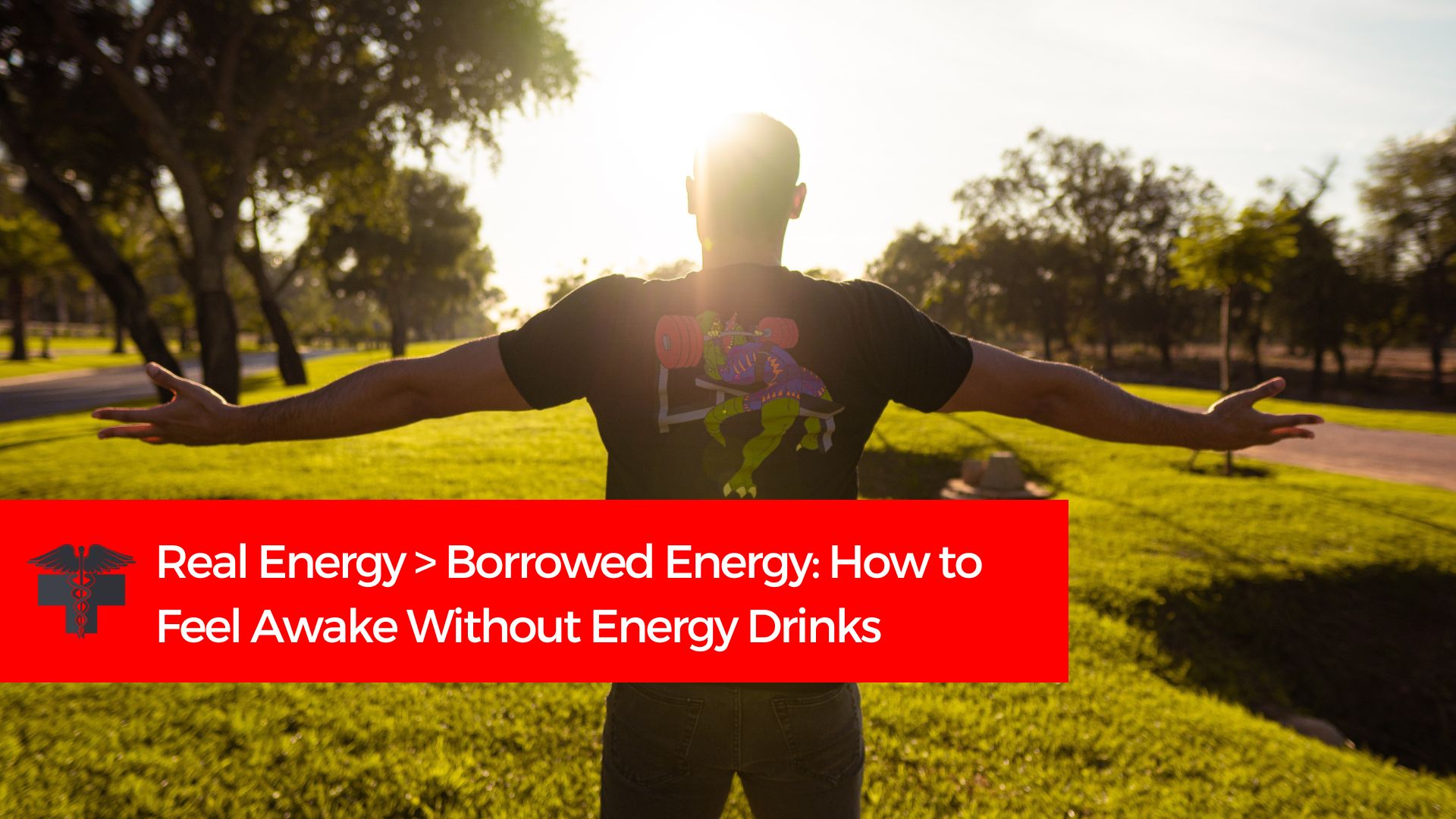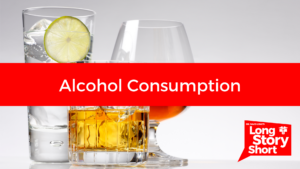Energy isn’t something you buy. It’s something you build. Energy drinks can feel like a shortcut, but the “boost” often borrows from tomorrow and can nudge your heart and sleep in the wrong direction. The good news? Real energy is trainable through sleep, light, hydration, protein, and movement.
Why Energy Drinks Aren’t The Answer
- They can affect your heart. Randomized trials show popular energy drinks can raise blood pressure and prolong the QTc interval (an electrical measure tied to arrhythmia risk) for hours after consumption.
- They add to stimulant load. For most healthy adults, the FDA’s upper limit for caffeine is about 400 mg per day (and less in pregnancy). Many energy drinks crowd that limit quickly on top of coffee or tea.
- Not for kids/teens. The CDC and American Academy of Pediatrics advise adolescents to avoid energy drinks; 30–50% report using them.
Bottom line: Energy drinks “feel” like energy but often trade short-term alertness for jitteriness, sleep disruption, and a harder crash.
How Your Body Actually Builds Energy (The Science)
1) Sleep sets your daily energy budget
Adults function best with roughly 7–9 hours of sleep per night. Too little (or too much) sleep is linked with worse metabolic, cardiovascular, and mental health outcomes.
When: Aim for a consistent sleep/wake schedule, not just total hours.
Why it works: Sleep restores brain and mitochondrial function and resets hormonal rhythms that drive daytime alertness.
2) Morning light = circadian “go” signal
Bright light soon after waking helps anchor circadian timing, improves sleep efficiency, and reduces daytime sleepiness in studies. Get outside light (not through sunglasses) for 10–20 minutes.
Why it works: Morning light helps phase-advance the body clock and modulates the cortisol awakening response, a natural rise in cortisol that supports alertness.
3) Hydration protects focus and mood
Even mild dehydration impairs memory and increases fatigue, while adding water improves processing speed, working memory, and mood in controlled trials. Try around 16 oz (about 500 mL) shortly after waking if you went all night without fluids.
4) Protein at breakfast blunts the midday crash
Protein-rich breakfasts increase satiety and can reduce later energy intake compared with higher-carb starts — steadier blood sugar, steadier energy. Pair 20–30 g protein with fiber (for example, eggs with berries, Greek-style yogurt alternatives with chia, or a tofu scramble).
When To Reach For What
- Right after waking (0–30 min): Outside light and water first. Caffeine later.
- 90–120 minutes after waking: If you use caffeine, this timing often aligns with the natural dip after the cortisol peak, reducing jitters and sleep interference.
- Mid-afternoon slump: Try a 10–20 minute power nap instead of an energy drink; short naps improve alertness and performance without grogginess.
- Anytime energy feels uneven: Check last night’s sleep, hydration status, and whether breakfast included protein and fiber.
What To Use Instead Of Energy Drinks (Better Alternatives)
- Sun and steps: Ten to twenty minutes of morning outdoor light and a short walk anchors your clock and gently elevates alertness.
- Hydrate on purpose: Sixteen ounces of water before caffeine; add electrolytes if you’ve been sweating a lot.
- Protein-forward breakfast: 20–30 g protein and fiber (for example, veggie omelet with avocado, oats with protein and flax, or yogurt alternative with nuts and chia).
- Smart caffeine: Prefer coffee or tea over energy drinks; mind the total dose and avoid within about six hours of bedtime to protect sleep.
- Power nap: Ten to twenty minutes, early afternoon.
- Movement snacks: Three to five minutes of brisk walking, squats, or stair bursts every 60–90 minutes fight sluggishness and improve blood flow.
FAQs (Fast Facts)
- “Are energy drinks always dangerous?” Small amounts may be tolerated by some adults, but multiple studies show blood-pressure and ECG changes after typical commercial servings. If you have heart, blood pressure, or sleep issues, or take QT-prolonging medications, avoid them.
- “How much caffeine is safe?” For most healthy adults, up to 400 mg/day from all sources. Children and teens should avoid energy drinks. Pregnant women should follow lower limits.
- “What if I’m exhausted every day?” Persistent fatigue can be a medical issue (sleep apnea, anemia, thyroid, depression). That’s a see-your-clinician moment.
What’s one small habit you’ll use this week to give your body real energy?





 and then
and then